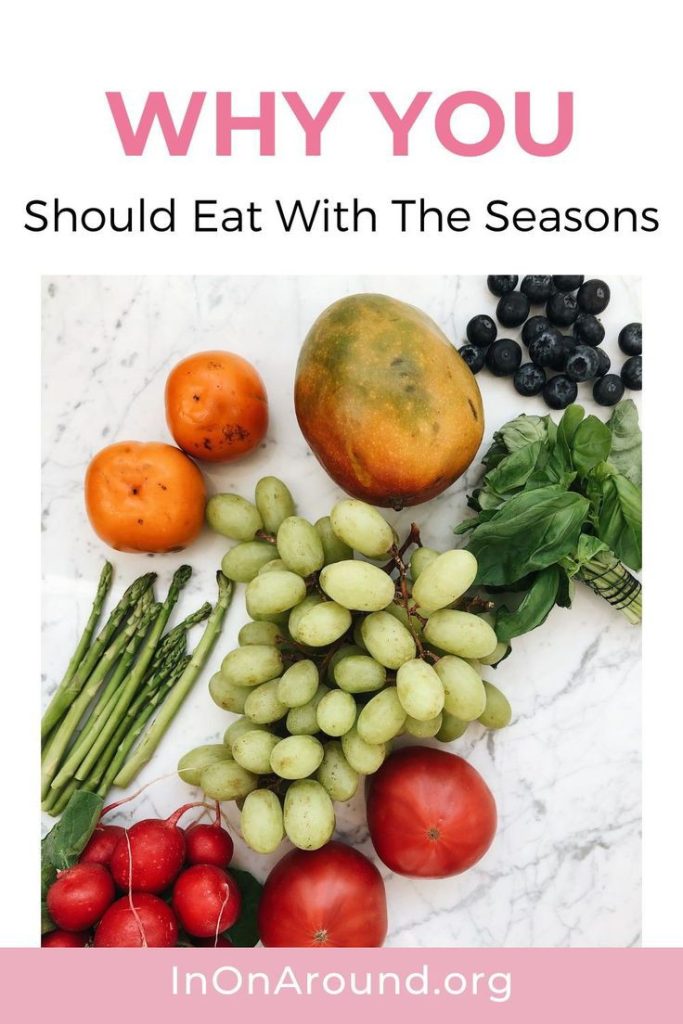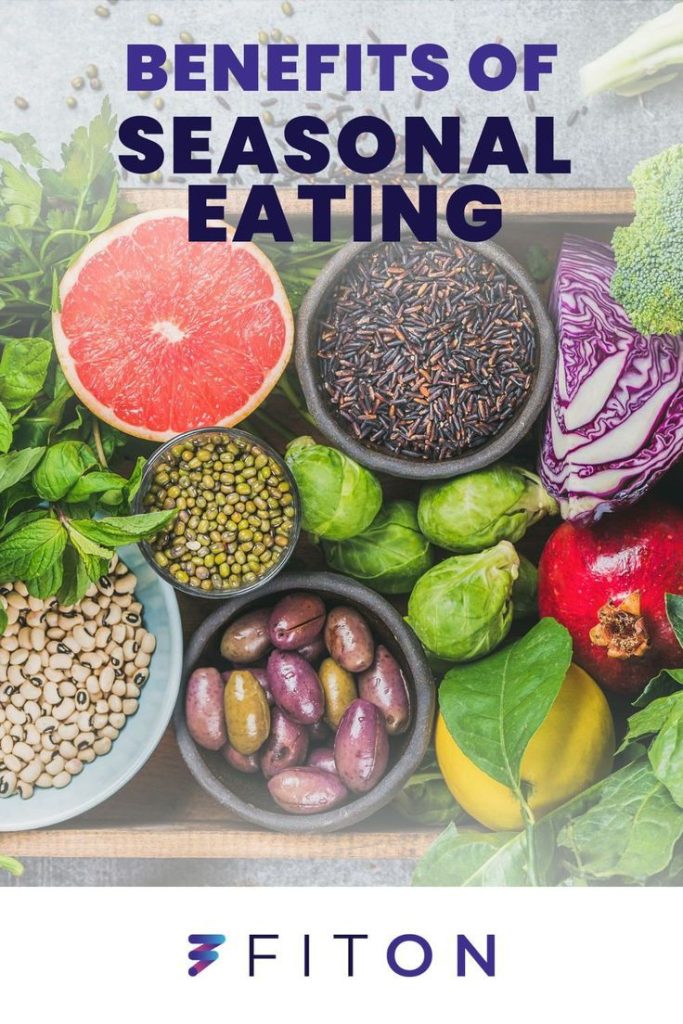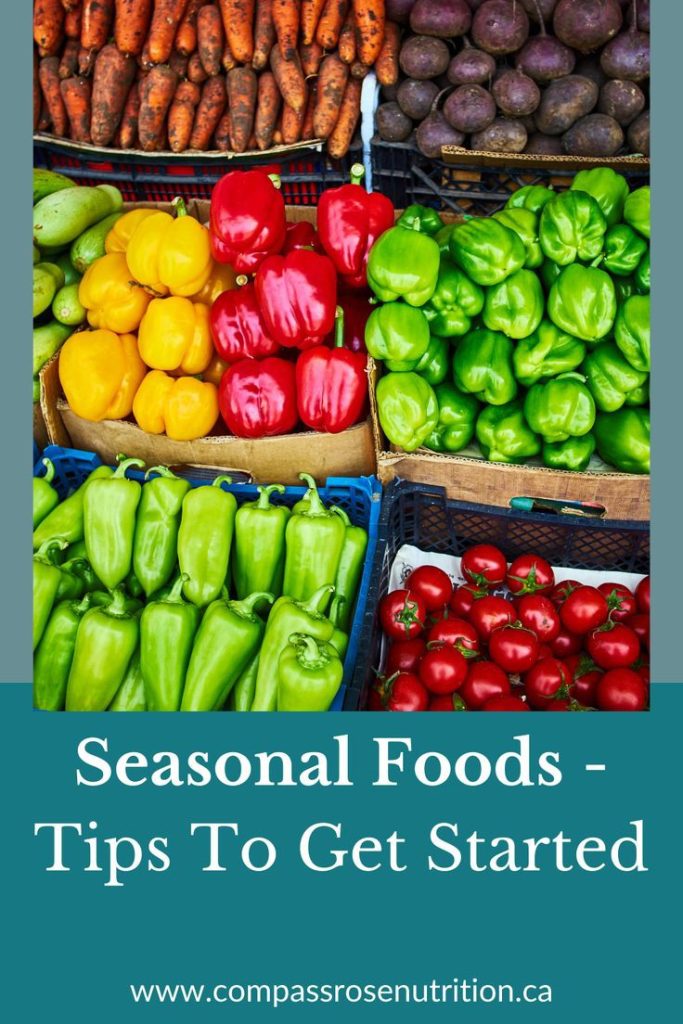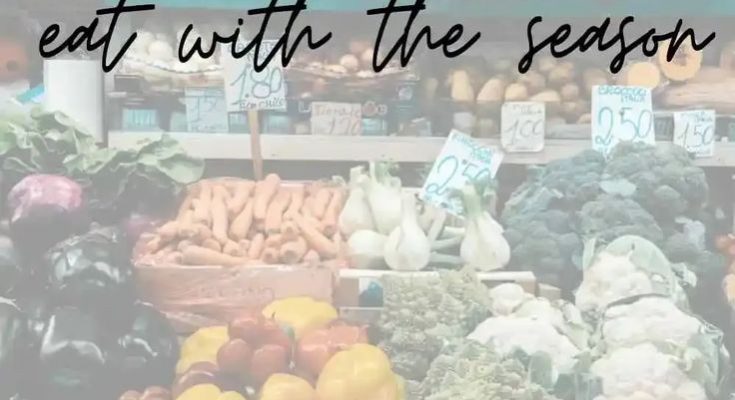Have you ever stopped to think about the food on your plate, where it came from, and when it was produced? When we take a moment to consider our food choices, we can realize the importance of eating in season. Eating seasonally not only benefits our health and the environment, but also our local economy. This blog post will explore the benefits of eating in season and provide tips for getting started.
Eating in season means eating food that is grown and harvested at the same period(time of the year) that you are eating it. This could mean enjoying foods at the peak of their freshness and ripeness. Eating seasonally is very healthy and results in higher quality and nutritious food.
Eating seasonally is different from eating food that has been harvested long before you eat it. Maybe months or years before, or has been stored or transported from a long distance. Eating seasonally is definitely a healthier option and community supporting because you get to eat the food naturally available in your community

Why it’s beneficial to eat foods that are in season
There are several reasons why it’s beneficial to eat foods that are in season. They include
- Freshness: Fruits and vegetables that are in season tend to be fresher and have a better flavor than those that are out of season. This is because they’re harvested at the peak of ripeness and haven’t been sitting around in storage for long periods of time.
- Nutritious: Seasonal produce is usually more nutritious than produce that’s been shipped long distances or stored for a long time. That’s because nutrients like vitamins and minerals begin to break down over time.
- Sustainability: Eating seasonally is more sustainable because it reduces the need for transportation by reducing the amount of energy and resources needed to produce and transport food.

Benefits of eating in season
There are several benefits to eating seasonally.
- Eating seasonally can save you money: Seasonal produce is often less expensive than out-of-season produce because it’s more readily available. It is an outstanding benefit.
- Eating seasonally can help you eat more healthfully: Eating seasonally means eating a variety of fruits and vegetables throughout the year, which can provide a range of nutrients. These nutrients are more body-nourishing.
- Eating seasonally can help you support local farmers: Buying produce that’s in season locally helps to support farmers in your area and keeps money in your community. I believe it is a patriotic gesture.
How to find out what’s in season
There are several ways to find out what’s in season in your area. Here are a few.
- Visit a local farmer’s market: When you visit a local farmers market, you can talk to the farmers directly and ask about what’s in season.
- Check out the USDA Seasonal Food Guide: The USDA’s Seasonal Produce Guide is an online resource that lists what fruits and vegetables are in season by month and region. This guide is helpful because it tells you exactly when specific produce items are at their peak.
- Look out for signs or displays that indicate what’s in season: Many grocery stores and supermarkets have signs or displays that indicate what’s in season. You can also ask your local produce manager.

Tips for eating in season
Here are some tips for making the most of seasonal produce:
- Shop at local farmer’s markets: Not only will you get the freshest produce, but you’ll also be supporting your local community.
- Try new recipes that feature seasonal ingredients: This is a great way to get creative in the kitchen and learn about new flavors and ingredients.
- Freeze and preserve seasonal produce: This is a great way to enjoy the bounty of the season throughout the year.
- Get involved in community-supported agriculture (CSA): This is a great way to get a weekly box of fresh, seasonal produce from a local farm.
- Buy what’s on sale: If you see seasonal produce on sale, stock up and freeze it for later.
- Buy “ugly” (imperfect) produce: This is produce that may not be perfect in appearance but is just as nutritious and delicious.
- Start a garden: Even if you don’t have a lot of space, you can grow herbs and vegetables in pots or window boxes.
- Use your local library: Check out cookbooks that feature seasonal recipes or take out a gardening book to learn more about growing your own food.
The importance of eating seasonally
Eating in season is important for a few reasons.
- Seasonal produce is higher in nutrients, and eating seasonally can help you get a variety of nutrients throughout the year. Therefore, It is good for your health.
- Eating seasonally means that you’re not relying on produce that has been transported long distances, which reduces your carbon footprint. Therefore, It is good for the environment.
- Supporting local farmers and growers helps to keep money in your community. Therefore, it is good for the local economy.
Conclusion
Eating seasonally is very healthy, nutritious, and important. It’s good for your health. Seasonal produce is higher in nutrients, and eating seasonally can help you get a variety of nutrients throughout the year. It’s also good for the environment.
Exploring the concept of “eating in season” is a blog post that widely discusses the benefits of eating in season, why it is beneficial to eat in season, and tips for eating seasonally.
I hope this was helpful.
Let me know in the comments.



